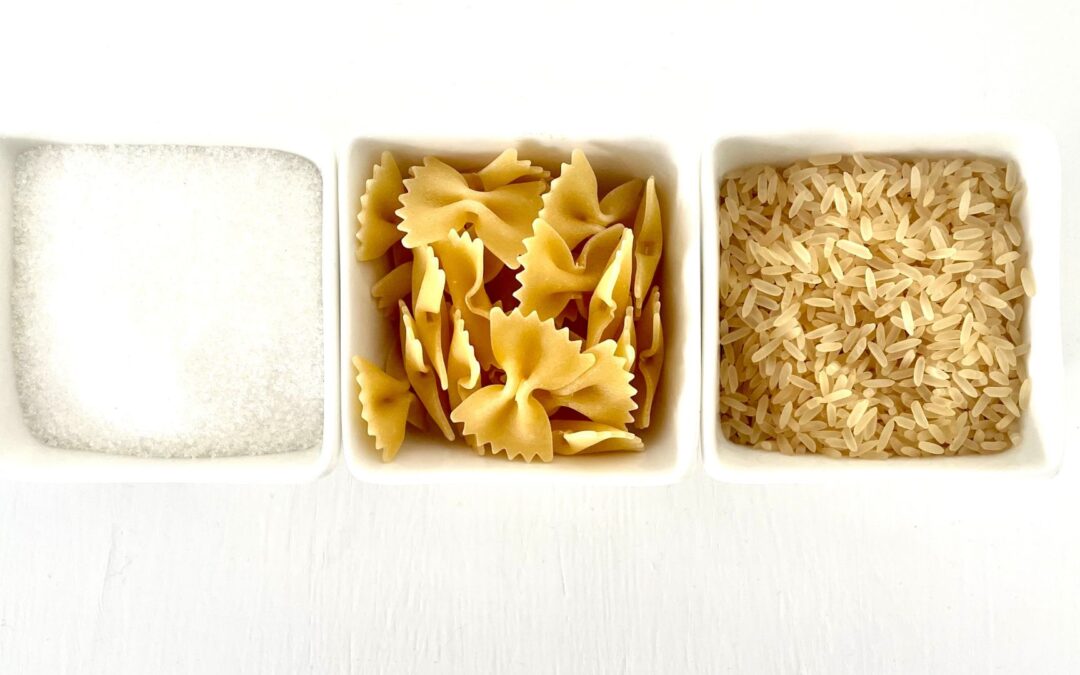Hormones!! Hormones are chemicals that coordinate different functions in your body by carrying messages through your blood to your organs, skin, muscles, and other tissues. Hormones give signals, telling your body what to do and when to do it. Hormones are essential for life and for your health. Hormones are also extremely powerful. It takes only a tiny amount to cause big changes in cells and even your whole body. That is why too much or too little of a certain hormone can be serious. Scientists have discovered over 50 hormones in the body so far.
Think of a hormone as a key and the cells of its target tissue, such as an organ or fat tissue, as specially shaped locks. If the hormone fits the lock (receptor) on the cell wall, then it’ll work; the hormone will deliver a message that causes the target site to take a specific action.
Insulin is the name of the hormone whose job is to control the use, distribution, and storage of energy. Essentially, insulin is the control hormone for glucose (a basic form of sugar); when you have your blood sugar levels checked, it is essentially a test to detect the amount of glucose in the blood. The body is always working and never at rest and it must always maintain a certain level of glucose in the blood.
We have all heard of people with diabetes. Type I diabetes is the name of the condition where your body does not produce enough insulin. Without insulin the body cannot use the sugar that is circulating in the blood stream, which can result in the body going into a coma and if the amount of glucose in the blood is too high, it can seriously damage the body’s organs. Type 1 diabetes is often detected at an early age and is an auto-immune condition, sometimes there is a genetic predisposition.
Type II diabetes develops in later life and is said to be a result of lifestyle and diet, and thus preventable, unlike Type I diabetes.
With type II diabetes, over time, because of a sedentary lifestyle and diet choices, the body’s cells become ‘deaf’ to insulin. This is the body’s response after constantly being subjected to high levels of insulin because of diet (and not using enough of the energy through exercise to make the cells more receptive to the insulin – hence the lifestyle factor). As a result, blood sugar levels start to increase, and this is when it often gets detected by a blood test.
What Happens When You Eat
From the food we eat, our body uses the macronutrients carbs, protein, and fat to provide our body with energy. From carbohydrates the body absorbs glucose, from fat, it absorbs glycerol and fatty acids, and from protein, it absorbs amino acids, which are the building blocks of all cells. Each different energy source is metabolised differently to generate useable energy. Among them, carbohydrates have the greatest effect on your blood sugar as carbohydrates are the closest form of useable energy for your body.
If you eat a lot of carbohydrates, which includes starches and sugars, you will end up with a lot of glucose in your blood stream. If you eat carbohydrates that are easily digested and take little breaking down, the glucose enters the blood stream very quickly. As the blood sugar levels quickly go up, the body responds by releasing lots of insulin into your blood to deal with the glucose. The insulin is what enables the sugar to move from your bloodstream into cells in your body, where it’s used for energy. Remember it is dangerous for the body to have high levels of blood sugar circulating in the blood stream, so the body quickly responds by producing insulin.
Carbohydrates That Quickly Release Sugar
There are some healthy and natural foods that can quickly raise your blood sugar levels. Here are some examples:
Bananas
Grapes
Dates
Raisins and sultanas
Oranges
Mango
Rice milk
Oat milk
If you juice any fruit and drink the juice, then there is zero effort required by the body to use the sugars – juices are instant energy, just like eating sweets. Smoothies are slightly better because the whole fruit is blended, usually including the peel and fibres of the fruit, but the very process of blending the fruit makes the sugar from the smoothie more easily absorbed. Plus, when we make a smoothie, we can often cram in a lot of fruit, more than what you would eat if you had to bite and chew all that fruit. Processed smoothies and even baby’s fruit pouches are pureed until ultra-smooth and heat treated, making the sugars much more quickly absorbed than eating the whole fruit, and thus cause a quick spike in blood sugar levels.
Tip – Be mindful of how much fruit you are blending into a smoothie and add some low sugar options, such as spinach, avocado, ginger, and cucumber. Berries are lower in sugar than say oranges, mangoes, bananas, and apples. Also, if you add some fat and protein it will help to slow down the digestion of the sugars and thus, slow the insulin secretion and reduce the sugar spike.
Here are some processed foods and drinks that quickly raise your blood sugar levels, causing a surge of insulin to be secreted:
Sweets, Haribo, Percy Pigs etc.
Chocolates and chocolate bars such as Mars, Dairy Milk, Galaxy, Twix, Maltesers
Cakes and biscuits
White bread, bagels, wraps
White rice, rice noodles
White pasta
Rice cakes
Crisps and chips
Processed cereals
Croissants
Pastries and doughnuts
Puddings and tarts (sticky toffee pudding, lemon meringue etc.)
Soda/fizzy drinks (the full sugar versions)
Squash (the full sugar version)
Wine and beer
Alcohol
What Happens When Your Blood Sugars Rise
Carbohydrates include fruits, vegetables, grains and starches. Legumes, beans and pulses also contain carbohydrates. The amount of carbohydrates that you eat, and the type of carbohydrates you eat, will determine the effect on your blood sugar levels. For example, a food full of sugar and refined flour, such as an iced bun or a doughnut, will raise blood sugar levels much quicker than a bowl of vegetables.
When you eat carbohydrates, to use the energy from the carbs, the body needs to release insulin to transport the glucose from your blood to your cells. Once it reaches the cells, three things can happen:
- It can be mobilised for immediate energy by the muscles.
- It can be converted into glycogen for later use as a source of energy (it is stored in the muscles and liver).
- It can be converted by the liver to fat and stored around the body.
So, when your body’s storage areas for glycogen are filled, the body must do something with the excess glucose, and insulin will then do the job of turning that excess glucose into fat, hence why insulin is called the “fat storing hormone”.
Not All Carbohydrates Are the Same
Not all carbohydrates found in food are the same. As mentioned above, there are the refined and processed carbohydrates, such as white bread, doughnuts, table sugar, biscuits, white rice, that is stripped of its fibre, and are turned into glucose very easily in the body, and thus cause a sugar spike and insulin surge. Then there are carbohydrates that contain the fibre. Fibre is a form of carbohydrate that comes from plant foods and is vital for the body and important to health. Some fibrous carbohydrates do not get digested at all (insoluble fibre) and that adds bulk and roughage which helps our intestines and the passing of waste and toxins through the body. The other type of fibre is soluble fibre, which dissolves in water and is also very beneficial to our health and our gut and gut microbiome.
The fibre from the carbohydrate does not impact blood sugar levels and is not converted to glucose. As the body must break food down and break down the fibrous material within the food, this process slows down the release of sugar/glucose/energy into the body and thus reduces an insulin spike. The body will slowly secrete insulin to deal with the slow digestion and release of the sugars from the food.
Tip – Eat whole, unrefined sources of carbohydrate. For example, whole grain oats, oat bran, beans, lentils, pulses, whole grain muesli, wholegrain spelt flour, brown rice, whole wheat. If you choose carbohydrates that have more fibre per 100g, you will be getting less carbohydrates/energy from the food as the fibre element does not get absorbed.
Fat and Proteins’ Impact on Blood Sugars
As the body must break down fat into fatty acids to be used as energy and protein into amino acids, fat and protein do not impact blood sugars like carbohydrates. As a result, they do not cause large surges of the fat-storing hormone insulin to be secreted; this is why high protein diets and high fat diets, such as the keto diet, have gained popularity over the years. But that is not to say that those diets are healthy or should be followed. Anything extreme is usually best avoided and very hard to adhere to long-term (and there is the yo-yo diet effect). If you eat fat and protein with carbohydrates, that will also slow down the digestion of carbohydrates and help to balance blood sugars.
Summary
Balancing your blood sugar levels has been proven to improve health, mood, hormone balance and generally promote wellbeing. To do that, it is recommended to eat foods as close to nature as possible; whole, unprocessed, skins on and fibre included. Avoid refined carbohydrates as much as possible. Read the labels of packeted foods to see how much sugar is added, it’s quite shocking. Eating some protein and fat with carbohydrates will also help to balance blood sugar levels. If you are wishing to lose weight, reducing your overall carbohydrate intake over the day can be useful, as will choosing less energy dense carbohydrate foods such as vegetables, in preference to starches, grains and sugars. Please also read my post: How to Eat Well & Lose Weight and Nutrition & Weight Loss Tip: Fill Up on Vegetables.
Tips & Suggestions for Putting This into Practice
- Eat fruit with some protein and fat, such as banana with some nut butter or some nuts. An apple with walnuts. Full fat yoghurt with berries.
- Eat whole fruit rather than juice.
- Make half your plate vegetables or salad, rather than pasta or rice, the rest good quality protein.
- Avoid food that has some form of sugar (or sweetener) listed among the top three ingredients.
- Avoid foods products containing high-fructose corn syrup.
- Only eat junk food that you have cooked yourself.
- Remember the quote: “The whiter the bread, the sooner you’ll be dead”.
- Limit your snacks to unprocessed plant foods.
- Treat treats as treats and not an everyday occasion.










